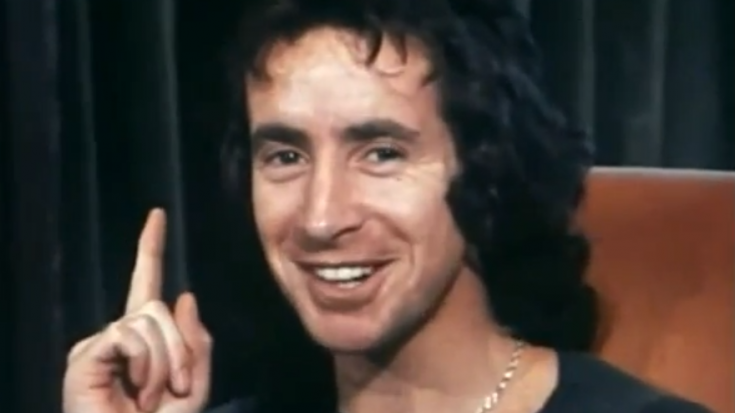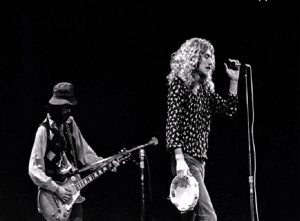The Events In Bon Scott’s Final Day Alive

Bon Scott in an interview - sghworldwide / Youtube
Bon Scott. The name roars with defiance, bare skin, and a swagger that shook rock’s foundations. As AC/DC’s frontman, he bellowed “Highway to Hell” and “TNT”, his raspy voice defining their raw sound. But in 1980, at 33, the music stopped. Scott was found lifeless, leaving a legacy that still echoes.
However, his final night remains shrouded in mystery. Was it just alcohol poisoning, or something deeper? Whispers of heroin linger. Did he contribute to Back in Black, released months later? These questions have haunted fans for decades.
Here we unveil the hidden secrets. We dive into that fateful night, examining evidence and theories surrounding Scott’s demise. Accident, self-destruction, or something sinister? Join us on this journey through his final thunderous night, separating fact from fiction and closing the final chapter of a rock legend’s life.
This isn’t just about Bon Scott’s death; it’s about his music’s enduring power and the mark he left on rock. So crank the volume, grab your air guitar, and let’s rewind to a night where the music died, but the legend lived on.
A defiant tribute for one of rock’s greatest rebel
Before Bon’s roar faded, AC/DC reigned underground, blistering stages with “Dirty Deeds” and “Highway to Hell”. Their raw sound echoed in dive bars, building a rabid fanbase. But mainstream glory remained just out of reach.
When tragedy struck in 1980 and Bon’s voice was silenced, it left a gaping void. But from the ashes rose Back in Black, a defiant tribute and a sonic explosion. It shattered boundaries, propelling AC/DC from gritty heroes to global icons.
This success came with a bittersweet sting. Bon’s absence was a raw wound, his lyrical fire irreplaceable. Yet, AC/DC pressed on, choosing Brian Johnson to carry the torch. His powerful vocals meshed with the Young brothers’ dedication, and Back in Black became more than a eulogy – it was a rebirth.
Though officially credited to others, whispers of Bon’s lyrical spirit linger. Maybe it’s just a rumor, but one thing’s certain: Back in Black was AC/DC’s defiant answer to loss, a testament to Bon’s legacy, and a reinvention that cemented their place among rock’s thunderous immortals.
https://twitter.com/historyrock_/status/1681661237812158475
AC/DC’s success powered by Bon Scott
AC/DC’s story is woven into the very fabric of rock and roll history. It’s a tale of two brothers, Malcolm and Angus Young, whose shared passion for guitar turned into a sonic hurricane that ravaged the music scene. In November 1973, alongside drummer Phil Rudd and bassist Cliff Williams, they laid the foundation for what would become one of the most iconic bands of all time.
Early on, Dave Evans served as the band’s vocalist, but it was the arrival of Bon in 1974 that truly ignited the AC/DC flame. Scott’s raspy vocals, electrifying stage presence, and rebellious spirit became synonymous with the band’s sound. Albums like High Voltage and Highway to Hell cemented their place as heavy metal pioneers, captivating audiences with their raw energy and no-nonsense attitude.
The release of Back in Black in 1980 after Bon’s death marked a bittersweet turning point. While the album propelled AC/DC to stratospheric heights, achieving the mainstream success they’d never dreamed of, it came at a devastating cost.
Back in Black was a double-edged sword. Its undeniable brilliance catapulted them into the limelight, but it also alienated some of their hardcore fans who mourned the band’s rawer, Bon Scott-led sound. Brian Johnson, who replaced Scott, brought a more polished and melodic approach that resonated with wider audiences, but he could never fully replicate the raw authenticity that only Bon possessed.
Was it just booze or something more?
The legendary hard rock frontman lived hard and partied even harder. As their success roared in the late 70s, so did his indulgences, culminating in tragedy in 1980. Alcohol was blamed, but whispers of heroin swirled.
The official story is tragic: an unconscious Bon was found in his car, then gone by morning. Alcohol poisoning, ruled the coroner, a misadventure befitting a wild spirit. Easy to accept, given Bon’s heavy drinking. Yet, doubts lingered.
Bon’s circle hinted at heroin, and inconsistencies fueled speculation. The hasty investigation, missing toxicology reports, and conflicting accounts cast shadows. Though some cling to alcohol, many suspect heroin played a part, perhaps even the leading role.
So, what extinguished Bon’s fire? Whiskey’s grip or heroin’s dance? The truth remains a murky mystery, echoing like his electrifying performances, forever etched in rock and roll lore. The debate lives on, a testament to the enigmatic frontman and the shadows that haunted his final days.
A darker theory behind his death
While AC/DC fans often associate Bon’s demise with his legendary love of drinking, the darker theory about heroin has long haunted the edges of his legacy. Some believe that what appeared to be alcohol poisoning might have, in reality, been a heroin overdose.
This speculation finds fuel in the testimonies of individuals familiar with the drug. They argue that the details of Bon’s death, from the rapid timeframe to the physical symptoms, align more closely with heroin’s effects than alcohol’s. However, definitively confirming this theory proves elusive.
The swiftness of the investigation also raised eyebrows. With the clear signs of heavy drinking, authorities seemingly bypassed a deeper examination of potentially contributing factors. They reasoned that alcohol’s established dangers rendered further tests unnecessary. This approach, however, leaves a lingering doubt, especially in light of the seemingly inaccurate classification on Bon’s death certificate.
Given Bon’s well-documented fondness for pushing boundaries, venturing into heroin isn’t an improbable notion. While the truth remains shrouded in ambiguity, these inconsistencies and conflicting details keep the whispers alive, suggesting that perhaps the story of Bon Scott’s final song might have a verse or two yet to be fully understood.
Bon’s extinguished flame giving light to Back in Black’s success
The intrigue extends beyond Bon’s death. While Back in Black, the legendary album released after his passing, officially credits Brian Johnson as the frontman, some believe Bon’s spirit lives on in its iconic riffs and lyrics.
Ex-girlfriends like Holly X and Silver Smith claim he not only shared snippets with them before his death, but that these whispers of lyrics evolved into the heart of hit songs like “You Shook Me All Night Long”. The mention of Holly’s horse, Double Time, in the song serves as a tantalizing clue, adding fuel to the flames of speculation.
Though the official record remains unchanged, these claims ignite a captivating debate. Did Bon’s creative flame, even extinguished, illuminate the path for Back in Black? Or are these whispers mere echoes lost in the lore of rock and roll?
The answer, like the truth surrounding Bon’s final days, may forever remain a mystery. Yet, this uncertainty amplifies the legend of the man who lived life on the edge, his musical spirit reverberating through the thunderous anthem of his rock and roll existence.
Young “Bonnie Scotland” and his rock and roll spirit
While Bon Scott’s ghost casts a long shadow over AC/DC, the band has endured, evolving through tragedy, lineup changes, and even genre-bending collaborations. Though officially credited to Brian Johnson and the Young brothers, many fans remain adamantly convinced of Bon’s uncredited contributions to Back in Black, adding a layer of intrigue to the album’s already potent legacy.
Yet, the AC/DC on stage today bears little resemblance to its 70s iteration. The past decade has seen the band weather multiple storms. Malcolm Young’s health struggles forced him into retirement, while Phil Rudd’s legal troubles led to his ousting. Malcolm died in 2017 due to the complications of dementia.
Even Brian Johnson, for a time, stepped away due to hearing concerns. At one point, only Angus Young and original bassist Cliff Williams remained, carrying the AC/DC torch alongside the unlikely figure of Guns N’ Roses frontman Axl Rose.
Through it all, Angus and Cliff persevered, showcasing remarkable dedication to the band’s legacy. While some purists mourn the loss of the Bon Scott era and the raw authenticity it embodied, AC/DC’s adaptability remains impressive. Their continued existence, even amidst lineup shifts and genre explorations, is a testament to the enduring power of their music and the spirit of rock and roll itself.














